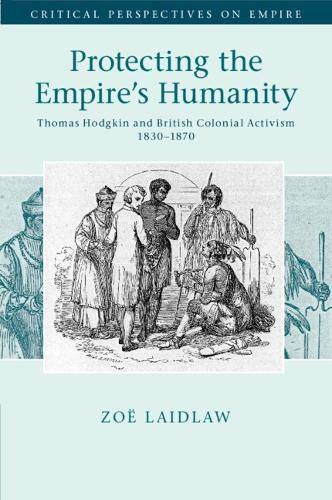Readings Newsletter
Become a Readings Member to make your shopping experience even easier.
Sign in or sign up for free!
You’re not far away from qualifying for FREE standard shipping within Australia
You’ve qualified for FREE standard shipping within Australia
The cart is loading…






Rooted in the extraordinary archive of Quaker physician and humanitarian activist, Dr Thomas Hodgkin, this book explores the efforts of the Aborigines' Protection Society to expose Britain's hypocrisy and imperial crimes in the mid-nineteenth century. Hodgkin's correspondents stretched from Liberia to Lesotho, New Zealand to Texas, Jamaica to Ontario, and Bombay to South Australia; they included scientists, philanthropists, missionaries, systematic colonizers, politicians and indigenous peoples themselves. Debating the best way to protect and advance indigenous rights in an era of burgeoning settler colonialism, they looked back to the lessons and limitations of anti-slavery, lamented the imperial government's disavowal of responsibility for settler colonies, and laid out elaborate (and patronizing) plans for indigenous 'civilization'. Protecting the Empire's Humanity reminds us of the complexity, contradictions and capacious nature of British colonialism and metropolitan 'humanitarianism', illuminating the broad canvas of empire through a distinctive set of British and Indigenous campaigners.
$9.00 standard shipping within Australia
FREE standard shipping within Australia for orders over $100.00
Express & International shipping calculated at checkout
Rooted in the extraordinary archive of Quaker physician and humanitarian activist, Dr Thomas Hodgkin, this book explores the efforts of the Aborigines' Protection Society to expose Britain's hypocrisy and imperial crimes in the mid-nineteenth century. Hodgkin's correspondents stretched from Liberia to Lesotho, New Zealand to Texas, Jamaica to Ontario, and Bombay to South Australia; they included scientists, philanthropists, missionaries, systematic colonizers, politicians and indigenous peoples themselves. Debating the best way to protect and advance indigenous rights in an era of burgeoning settler colonialism, they looked back to the lessons and limitations of anti-slavery, lamented the imperial government's disavowal of responsibility for settler colonies, and laid out elaborate (and patronizing) plans for indigenous 'civilization'. Protecting the Empire's Humanity reminds us of the complexity, contradictions and capacious nature of British colonialism and metropolitan 'humanitarianism', illuminating the broad canvas of empire through a distinctive set of British and Indigenous campaigners.